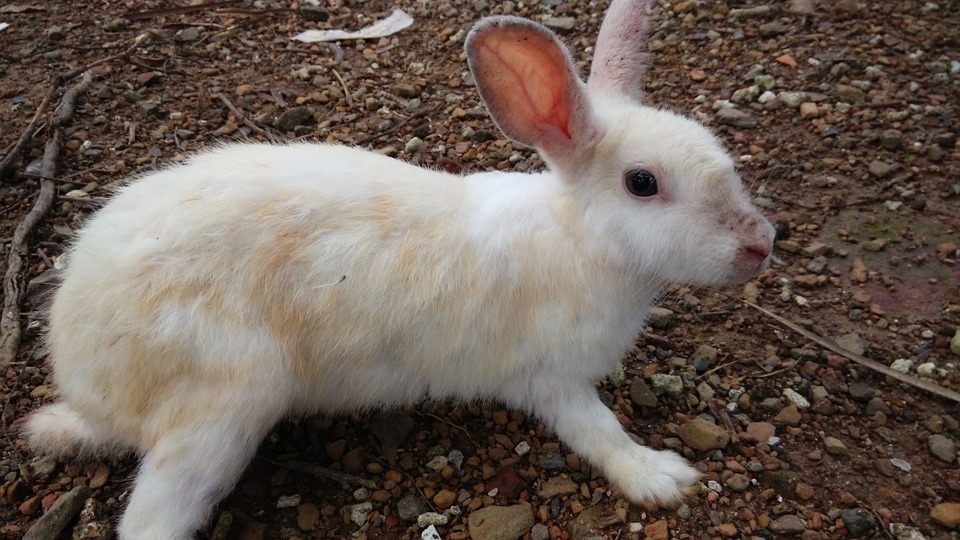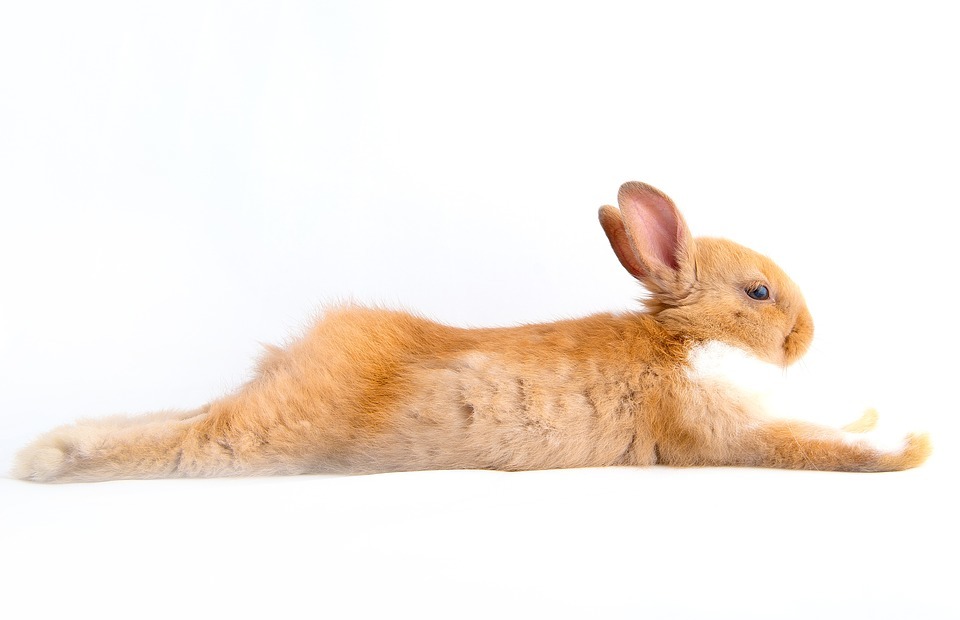This comprehensive guide delves into the potential risks of begonias for rabbits, exploring the diverse types of these vibrant plants and their varying toxicity levels. We'll unravel the complex relationship between begonias and rabbit health, offering practical tips to protect your furry friend from harm. Whether you're a seasoned rabbit owner or new to the world of bunny care, this resource aims to equip you with the knowledge needed to make informed decisions about your rabbit's well-being.
Part 1: Unveiling the Potential Dangers of Begonias for Rabbits

1.1. The Delicate Nature of Rabbit Digestion
Rabbits are herbivores with a highly specialized digestive system. Their bodies are perfectly adapted to break down fibrous plant matter, but their delicate digestive tracts are sensitive to certain substances, including those found in some begonias.
1.2. Calcium Oxalate: The Culprit Behind Toxicity
Many varieties of begonias contain calcium oxalate crystals, which act as a natural defense mechanism against herbivores. These sharp crystals are microscopic but can cause significant irritation and discomfort when ingested by rabbits.
1.3. The Impact of Calcium Oxalate Crystals on Rabbit Health
- Oral Irritation and Pain: When calcium oxalate crystals come into contact with the rabbit's mouth and throat, they can cause burning sensations, leading to excessive drooling and difficulty swallowing.
- Gastrointestinal Distress: Ingestion of calcium oxalate crystals can irritate the rabbit's digestive tract, leading to vomiting, diarrhoea, and abdominal pain.
- Kidney and Liver Issues: In severe cases, prolonged exposure to calcium oxalate can potentially strain the rabbit's kidneys and liver, leading to more serious health complications.
1.4. The Importance of Understanding Individual Sensitivity
It's important to note that rabbits can vary in their sensitivity to calcium oxalate. Some rabbits may experience only mild discomfort after ingesting small amounts of begonias, while others may suffer severe reactions requiring immediate veterinary attention.
Part 2: Decoding the Diverse World of Begonias

2.1. A Symphony of Colors and Textures
Begonias come in a stunning array of shapes, sizes, and colours, making them a popular choice for gardeners and plant enthusiasts alike. However, their beauty can be deceptive when it comes to rabbit safety.
2.2. Tuberous Begonias: The Showstoppers
Tuberous begonias, with their large, vibrant blooms, are often considered the "stars" of the begonia family. Their impressive flowers come in a wide range of colours, attracting attention and admiration. However, these vibrant blooms are also a source of calcium oxalate, making them potentially harmful to rabbits.
2.3. Wax Begonias: Delicate and Deceptively Toxic
Wax begonias, often seen cascading from hanging baskets, are beloved for their delicate blooms and vibrant colours. Their waxy leaves and flowers, while aesthetically pleasing, contain calcium oxalate crystals that can cause discomfort and illness in rabbits.
2.4. Rex Begonias: A World of Intricate Foliage
Rex begonias are prized for their intricate foliage patterns and colours, resembling works of art. Their leaves are a captivating blend of textures and shades, but these captivating features also contain calcium oxalate, making them unsafe for rabbits.
2.5. Cane Begonias: Tall and Striking, But Toxic
Cane begonias, with their upright, cane-like stems and large, showy leaves, add a dramatic touch to any space. Their striking appearance, however, doesn't negate their potential toxicity to rabbits, as they also contain calcium oxalate.
2.6. Angel Wing Begonias: A Unique Shape, But a Common Threat
Angel wing begonias are named for their distinctive, wing-shaped leaves, which add a touch of whimsy to any garden. These unique leaves, despite their beauty, also contain calcium oxalate crystals, making them unsafe for rabbit consumption.
Part 3: Safeguarding Your Bunny's Well-being: Prevention Strategies
3.1. Proactive Measures for Peace of Mind
Prevention is the key to ensuring your rabbit's safety around begonias. By taking proactive measures, you can create a safe environment for your furry friend.
3.2. The Importance of Accessibility
The first line of defense is to ensure that your rabbit cannot access begonias. This means placing these plants in areas that are out of reach, such as high shelves or rooms where your rabbit is not allowed.
3.3. Constant Supervision: A Crucial Step
Never leave your rabbit unsupervised in an area where begonias are present. Even if your rabbit has a history of not showing interest in plants, a moment of curiosity can lead to accidental ingestion.
3.4. Creating a Rabbit-Friendly Oasis
Instead of keeping begonias, consider filling your garden or home with rabbit-safe alternatives. Dandelions, parsley, chamomile, and other safe plants can provide a colorful and enriching environment for your bunny.
3.5. Training Your Rabbit: A Positive Approach
While not always feasible, you can attempt to train your rabbit to avoid begonias. Positive reinforcement methods can be effective in encouraging your rabbit to stay away from certain plants.
Part 4: Responding to a Begonia Ingestion Incident
4.1. Recognizing the Signs: Early Detection is Key
If you suspect your rabbit has ingested a begonia, it's crucial to act quickly and observe for any signs of discomfort or illness.
- Excessive Drooling: A sudden increase in drooling can indicate irritation in the mouth and throat.
- Difficulty Swallowing: Your rabbit may experience difficulty swallowing due to pain and irritation.
- Gastrointestinal Distress: Look for signs of vomiting, diarrhoea, or abdominal pain.
- Swelling of the Tongue or Lips: The calcium oxalate crystals can cause inflammation and swelling in the oral cavity.
4.2. Seeking Veterinary Care: The Importance of Professional Help
If you observe any of these symptoms, contact your veterinarian immediately for professional advice. They can assess the situation, determine the best course of action, and provide guidance on how to manage your rabbit's symptoms.
4.3. Providing Immediate Support
While waiting for veterinary guidance, you can take steps to provide immediate support to your rabbit.
- Offer Fresh Water: Encourage your rabbit to drink plenty of fresh water to help flush out any toxins.
- Consider Activated Charcoal: Your veterinarian may recommend activated charcoal to bind with toxins in the digestive system.
Part 5: Demystifying Common Questions about Begonias and Rabbits
5.1. Are All Begonias Toxic to Rabbits?
While many begonias contain calcium oxalate, the level of toxicity can vary between species. It's generally best to assume that all begonias are potentially harmful to rabbits and avoid them altogether.
5.2. Can Rabbits Eat Begonia Leaves?
No, rabbits should not eat begonia leaves. They contain calcium oxalate crystals that can cause oral irritation, gastrointestinal distress, and other health problems.
5.3. Are Begonias Poisonous to Rabbits?
The term "poisonous" is often used for substances that are highly toxic and can cause serious harm or death. While begonias are not typically considered poisonous in the strictest sense, they can be toxic to rabbits and should be avoided.
5.4. What Should I Do if My Rabbit Shows Signs of Begonia Poisoning?
If you suspect your rabbit has ingested a begonia and is exhibiting symptoms, contact your veterinarian immediately. They can provide the best course of action based on your rabbit's condition.
5.5. Can I Give My Rabbit a Begonia Flower?
No, you should not give your rabbit a begonia flower. The flower, like the leaves and stem, contains calcium oxalate crystals that can be harmful to rabbits.
5.6. Are There Any Begonia Varieties That Are Safe for Rabbits?
Currently, there are no known begonia varieties that are considered safe for rabbits to eat. It's best to err on the side of caution and avoid all types of begonias.
5.7. Can I Grow Begonias in My Rabbit's Enclosure?
It's strongly advised against growing begonias in your rabbit's enclosure. The risk of ingestion is too high, and even accidental contact can cause discomfort.
5.8. Are Begonias More Toxic Than Other Plants?
The toxicity level of different plants can vary. While begonias can cause harm to rabbits, some other plants, such as azaleas and lilies, are considered more toxic.
Part 6: Protecting Your Rabbit: A Holistic Approach
6.1. Creating a Safe Environment
Beyond avoiding begonias, ensuring a safe environment for your rabbit involves several key factors:
- Secure Enclosure: A secure enclosure protects your rabbit from predators, hazards, and potentially toxic plants.
- Supervision and Playtime: Supervise your rabbit during playtime and ensure access to a safe, rabbit-friendly space where they can explore and exercise.
- Fresh Water and Diet: Provide fresh water and a balanced diet rich in hay, vegetables, and a small amount of pellets, as these are crucial for your rabbit's health and well-being.
- Regular Vet Checkups: Regular veterinary checkups allow your veterinarian to monitor your rabbit's health and address any potential issues promptly.
6.2. Understanding Your Rabbit's Needs
Each rabbit has unique personality traits and preferences. Pay attention to your rabbit's individual needs and habits:
- Behavior and Communication: Observe your rabbit's behavior to learn their cues and understand their needs.
- Enrichment and Stimulation: Provide toys and activities to keep your rabbit mentally and physically stimulated, preventing boredom and destructive behaviors.
- Dental Health: Rabbits need to constantly chew to wear down their teeth. Provide a variety of safe chew toys and ensure their teeth are checked regularly by a veterinarian.
6.3. Resources for Further Information
For more in-depth information on rabbit care, consult reliable resources:
- Veterinarians: Your veterinarian is the best resource for advice on rabbit health and well-being.
- Rabbit Welfare Organizations: Organizations like the Rabbit Welfare Association & Fund (RWAF) and the House Rabbit Society offer valuable information on rabbit care, behavior, and health.
- Online Resources: Reputable websites and forums provide a wealth of information on rabbit care. Be sure to rely on sources from trusted organizations and veterinary professionals.
By understanding the potential dangers of begonias and following the tips provided in this guide, you can ensure a safe and healthy environment for your beloved rabbit.
Everyone is watching
-

Do Rabbits Lay Eggs? (The Surprising Truth)
OTHER TYPES OF PETSThis article will unravel the common misconception that rabbits lay eggs, exploring the fascinating world of r...
-

Can Rabbits Eat Grapes? A Guide to Safe Rabbit Treats
OTHER TYPES OF PETSThis comprehensive guide will explore the safety and suitability of grapes for rabbits, providing detailed inf...
-

What's a Group of Rabbits Called? (A Comprehensive Guide)
OTHER TYPES OF PETSThis article delves into the fascinating world of rabbits, exploring the various terms used to describe a grou...
-

Predators That Hunt Rabbits: A Guide to Natural Enemies
OTHER TYPES OF PETSI've always been fascinated by the circle of life, that delicate dance between predator and prey. Growing up ...
-

Are Rabbits Nocturnal Animals?
OTHER TYPES OF PETSThe question of whether rabbits are nocturnal animals is a fascinating one, with a surprisingly complex answer...
